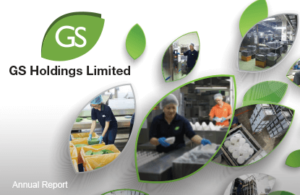Small cap stocks — generally having a market cap value of about $300 million to $1 billion — have been proven to outperform large cap stocks over time. However, their volatility is also far more extensive than those of large ones.
Hence, the real challenge is to figure out which are the best small-cap stocks to buy because only but a selected few make it to the big time.
As of September 2019, there are 700+ listed companies on SGX and it is tedious to screen out hidden gems with lots of upside by going through them one by one. However, we have taken up this challenge to sieve out 3 relatively hidden small cap stocks that you can add to your watch-list.
#1 Delfi Ltd
For a quick background, Delfi Ltd manufactures and distributes chocolate confectionery products. Its products range from chocolate bars to dragees. Delfi’s products are sold in Singapore, Malaysia, Indonesia, Australia, etc.
According to its latest half-yearly 2019 financial report, the company increased its revenue by 11.2% to USD 240.6 million while its PATMI increased by 20.7% to USD 15.4 million on a year-to-year basis.
A Notable point is that the company also pared down its debt from USD 59 million to USD 48.8 million due to its strong free cash flow generation of USD 15.1 million.
Delfi’s main source of revenue is derived from Indonesia. According to World Bank, consumption of chocolate confectionery increased from IDR 10,543 billion to IDR 13,127 billon from 2013 to 2018. The increase came at the support from the growing middle class.
According to Euromonitor, Delfi has 45% market share of chocolate confectionery market in Indonesia. With the strong market standing and the expanding market, one can assume that Delfi’s revenue growth can be sustained in the near term.
Delfi Ltd last closed at $1.02, and this values it at 17.8x trailing P/E and dividend yield of 2.5%.
#2 GS Holdings
GS Holdings Limited started out as a company providing centralized dishware and cutlery washing services to F&B outlets in Singapore. Over time, GS Holdings expanded to 3 main segments:
- End-to-End cleaning service for F&B
- Branding, operations and procurement (BOP) services
- Operating of F&B brands such as Sing Swee Kee chicken rice and 3 food courts in Bukit Batok and Sungei Kadut
According to its latest half-yearly 2019 financial report, the company increased its revenue by an astounding 214% to $15 million. Its net profit turned positive to $7.2 million. Cash flow from operations turned positive and raked in $392,000.
In fact, according to Investor-One, the Group’s revenue increased from S$5.0 million in 1H2018 to $15.8 million in 1H2019 mainly attributable to the receipt of service fee from 14 BOP service agreements as a result of the Agreement with HJT.
Here’s a quick explanation for the BOP services. GS holdings use their F&B experience and know-how to manage franchises and undertake related BPO functions + recruitment, training, quality assurance services etc.
By outsourcing these services to GS, the outlets in China are able to
- Provide their customers with high-quality products and services consistently
- Tap on marketing leads and expand their customer base
- Achieve cost savings in the procurement of products and services
Since its listing in 2016, GS’s profits have constantly been in the red. With the astute move by the management by moving to higher margin businesses, the profit turned green for the first time in 2019.
GS acquired Hao Kao Wei to be in the food court business and also further diversified into BOP services. GS leverages on its domain expertise in the F&B industry and translated it into a service-oriented business. This business requires low CAPEX and can provide more cash flow. It is low risk and a potential cash cow for the company.
GS Holdings last closed at $0.725, which values it at a trailing P/E of 42.7x and does not offer any dividends.
#3 JEP Holdings
JEP provides precision machining and engineering services with a primary focus on the aerospace industry. It also has operations in Oil & Gas and semiconductor industries. The group is headquartered in Singapore and has 4 manufacturing locations here.
According to its latest half-yearly report, JEP’s revenue increased by 2.4% to $44 million while its net profit turned the corner and came at a positive $3 million. This came on the back of lower COGS and administrative expenses which also resulted in an admirable free cash flow of $5.8 million.
JEP’s focus on aerospace is one of the main factors for investing in the company. There is a huge global backlog for aircraft deliveries to around 10 years, and there is a massive search for capacity.
Another positive factor is the turnaround of the management team. With UMS’ CEO taking over and shifting labour intensive work to Malaysia, JEP is seeing a pickup of its financial standing.
In short, these two positive factors will likely drive JEP’s business in the future. JEP last closed at 0.235, giving it a trailing P/E of 16.9x with no dividend payouts.
Looking to lead a comfortable retirement? You need to learn how to save and put those into work by investing well. Right here, You can develop your own Unique Investing System via a simple 10-Step Checklist.
Simply click to find out more today!



